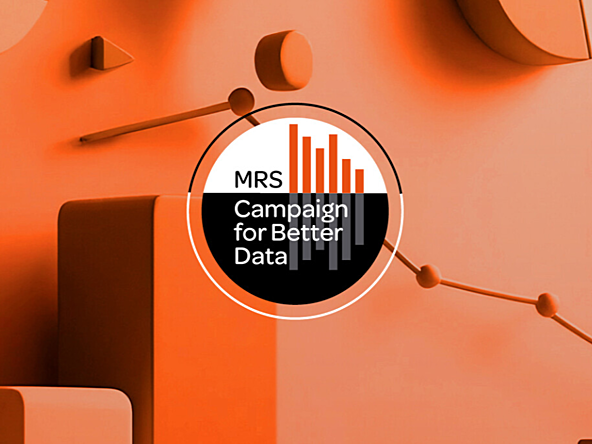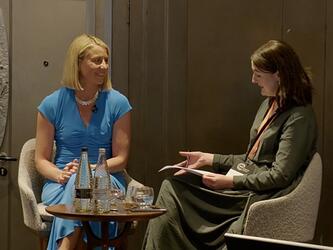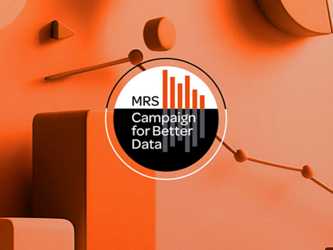The research sector must increase vigilance to create better data

Every day, government, businesses, professionals and individuals make millions of decisions that will shape our future. Many of these decisions will affect the lives of future generations fundamentally.
Such decisions are based on the evidence available and that evidence is generated from many sources. A lot of it comes from the research sector, which is why, in the UK, we contribute over £9bn to the economy.
The sector has always innovated and adapted; from large language models (LLMs) to neuroscience techniques, we have adopted, developed and applied all sorts of approaches to provide the evidence and insight our stakeholders and clients need.
These days we cannot avoid the misinformation that seems to pervade public discourse. Poor evidence can come from as simple a root as poor research technique, selective use of data sets, biased reporting – or as large scale as the alleged fraud cases currently being charged in the US.
Publicly available AI tools, despite their increasing sophistication, are trained on historic data, incorporating biases and historical inaccuracies which make it much more difficult to know fact from hallucination. A generic AI model doesn’t currently assess the accuracy of the data inputted into its model, and the model itself is a black box.
So great primary research will always be needed, and professional researchers are well placed to create the data and evidence that those taking decisions about the future will need.
We need to increase our vigilance and continue to develop our skills to be able to ensure the data we use as evidence is as accurate as possible. This is the way we can continue to stand for the truth.
Researchers are uniquely placed to be in the front line of the information war. But we all need help.
Skills and principles: We need to double down on our professional skills and ethical principles to continue to ensure that the data we use is generated honestly and is robust enough to survive challenge. We need to get more skilled at creating discipline in briefing, more focused in research design and more accurate in creating representative sampling. Core and basic data skills cannot be assumed and up-to-date training is vital for individuals and teams alike. Agencies will need to stay ahead of clients to justify their place in the value chain.
Transparency: We must demand transparency and be ready to be transparent ourselves in reporting methods and results. What we do must be open to challenge and honest dialogue if it is to be trusted.
Verification: We must also invest in verification – the skills to verify and the time to ensure verification is conducted.
All of this will require investment in time, people and systems, and consistency in principles and approach. It will also require a commitment to innovation to allow our skills to match the needs of technology and to take advantage of its possibilities.
It may sound daunting and difficult, but MRS has created the Campaign for Better Data to help improve the access to trusted resources, guidance on research and new technology, and training for the skills we all need, together with the latest in standards and thinking on research and data quality.
The Campaign for Better Data site curates these resources, as well as the very latest in guidance for research and AI, and access to the resources of the Global Data Quality initiative – one of MRS’s core projects – to help you in your preparations to meet the challenges faced by researchers in the second quarter of the 21st century.
For this Campaign to work, we must all commit to making changes. Everyone’s future in research is at risk if declines in participant trust are not halted and the data we produce is not such as we would be proud of.
I am so glad that in launching the Campaign we have had the active support of the leaders of the industry's biggest agencies, as demonstrated by the public backing of Kelly Beaver of Ipsos and Marie Ridgley and Caroline Frankum of Kantar. I want to see more agency leaders committing to change and more clients specifying quality standards.
So, what can you do to be part of this partnership?
Everyone needs to commit to a data strategy and clear goals for delivery, but in the end, leaders must lead. Without KPIs set from the top, nothing will change. Clients must ensure quality is part of the brief and acknowledge their responsibility as the fount of the value chain.
In the end, I think it all comes down to professional pride. We claim to be professionals, but we urgently need to build the capacity and capability to justify professional credentials. More new talent needs to be undertaking training and professional qualifications or undertaking apprenticeships. There is financial help for qualifications via MRBA bursaries.
We need great briefs from clients, who need to engage their procurement departments to understand the need for quality. Toy retailers wouldn’t accept ‘a nod and a wink’ as reassurance that the latest teddy bear range was not made in sweat shops – they should be demanding evidence of standards in the whole value chain in the research they procure.
The MRS Code of Conduct is there for a reason; accredited companies and individual members have signed up to a commitment to ethical practice such as transparent reporting.
More companies need to sign the GDQ data quality excellence pledge.
Partner with us – give us your ideas, join the debate wherever it is conducted, help deliver change and have real pride in our amazing sector.
Jane Frost is chief executive at MRS
Resources and further information can be found on the MRS Campaign for Better Data site.

We hope you enjoyed this article.
Research Live is published by MRS.
The Market Research Society (MRS) exists to promote and protect the research sector, showcasing how research delivers impact for businesses and government.
Members of MRS enjoy many benefits including tailoured policy guidance, discounts on training and conferences, and access to member-only content.
For example, there's an archive of winning case studies from over a decade of MRS Awards.
Find out more about the benefits of joining MRS here.














0 Comments